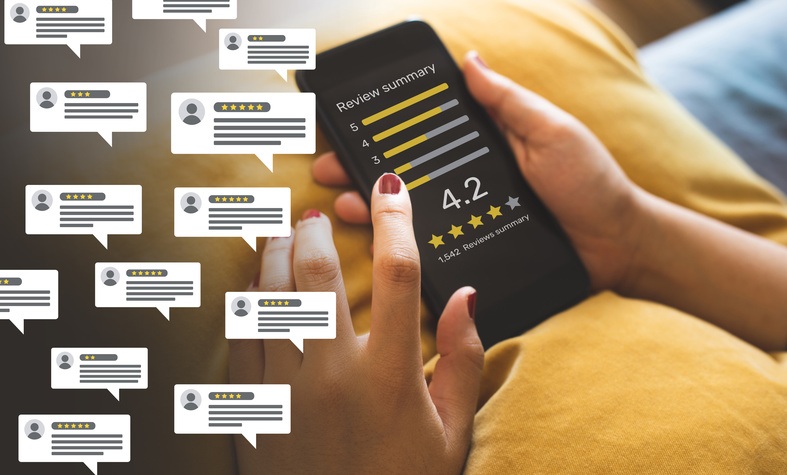Public Relations (PR) can be a powerful tool for startups to reach their target audience, build trust, and generate leads. Here are some statistics to back this up:
-
96% of B2B buyers want content with more input from industry thought leaders. (Demand Gen Report)
-
Millennials are 247% more likely to be influenced by blogs or social networking sites. (HubSpot)
-
80% of business decision-makers prefer to get company information in a series of articles versus an advertisement. (Content Marketing Institute)
-
93% of B2B buying processes begin with an online search. (HubSpot)

Here are 5 essential PR tactics that every new business should implement to effectively promote their brand and attract customers.
1st. Craft a Compelling Brand Story
Crafting a compelling brand story is essential for new businesses to differentiate themselves from the competition and connect with their target audience. A brand story is more than just a simple narrative - it should capture the essence of the business, its values, and its mission. By telling a captivating story, new businesses can create an emotional connection with customers and build brand loyalty.
To craft a compelling brand story, start by identifying your unique selling proposition (USP) - what sets your business apart from others in the market. Then, think about the values and beliefs that drive your business and how they align with the needs and desires of your target audience. Use storytelling techniques to bring your brand to life, using language that resonates with your audience and evokes emotion. Remember to be authentic and genuine in your storytelling, as customers can easily detect insincerity.
Once you have developed your brand story, integrate it into all aspects of your marketing and communication strategies. Use it in your website copy, social media posts, press releases, and any other communication channels. Consistency is key to reinforce your brand identity and establish a strong presence in the market.
2nd. Build Relationships with Media Outlets

Building relationships with media outlets is crucial for new businesses to gain exposure and generate media coverage. Media outlets, such as newspapers, magazines, and online publications, can help spread the word about your business and reach a wider audience.
Start by researching media outlets that are relevant to your industry and target audience. Identify journalists and reporters who cover topics related to your business and reach out to them with a personalised pitch. Offer them exclusive stories, expert insights, or access to your products or services to capture their interest.
It's important to build genuine relationships with journalists, rather than simply treating them as a means to an end. Take the time to understand their interests and preferences, and offer them valuable content that aligns with their areas of coverage. Be responsive and reliable, providing timely information and addressing any questions or requests they may have. By building trust and rapport with media professionals, you increase the likelihood of getting positive media coverage for your new business.
3rd. Leverage Social Media Platforms
Social media platforms offer a cost-effective and powerful way for new businesses to connect with their target audience and build brand awareness. With billions of users worldwide, platforms like Facebook, Instagram, Twitter, and LinkedIn provide ample opportunities to reach potential customers and engage with them directly.
To leverage social media effectively, start by identifying which platforms are most popular among your target audience. Create compelling and engaging content that aligns with your brand identity and resonates with your audience. Use a mix of text, images, videos, and interactive elements to capture attention and encourage interaction.
Engage with your followers by responding to comments, messages, and mentions in a timely manner. Encourage user-generated content by running contests, asking for feedback, or featuring customer stories. Collaborate with influencers or industry experts to expand your reach and credibility. Regularly analyse your social media performance using analytics tools and adjust your strategy accordingly to maximise your results.
4th. Utilise Influencer Marketing
Influencer marketing has become increasingly popular in recent years, and it can be a powerful tool for new businesses to reach their target audience and build brand awareness. Influencers are individuals who have a large following and influence over their audience's purchasing decisions and opinions.
To utilise influencer marketing, start by identifying influencers who align with your brand values and target audience. Look for influencers who have a genuine interest in your industry or niche, as their endorsement will carry more weight with their followers. Reach out to them with a personalised pitch, offering a mutually beneficial collaboration. This could involve sponsored content, product reviews, giveaways, or partnerships.
When working with influencers, it's important to maintain transparency and authenticity. Clearly disclose any sponsored content to comply with advertising regulations and ensure that your audience knows the content is paid promotion. Monitor the performance of influencer collaborations and assess their impact on brand awareness, customer engagement, and sales. Adjust your influencer marketing strategy as needed to achieve optimal results.
5. Monitor and Respond to Online Reputation

In today's digital age, online reputation can make or break a new business. It's essential to monitor what is being said about your brand online and respond to any feedback or reviews in a timely and professional manner.
Start by setting up Google Alerts or using social media monitoring tools to track mentions of your brand name, products, or key personnel. This will allow you to stay informed about any online conversations or reviews related to your business. Regularly check review sites, social media platforms, and online forums to ensure you are aware of both positive and negative feedback.
When responding to online feedback, always maintain a professional and respectful tone. Address any concerns or complaints promptly and offer solutions or explanations where appropriate. Thank customers for positive feedback and encourage them to share their experiences with others. By actively managing your online reputation, you can build trust and credibility with your target audience and mitigate any potential damage to your brand.
Overall, PR is an important tool for startups because it can help them to achieve their marketing and business goals. By investing in PR, startups can increase their brand awareness, establish thought leadership, generate leads and sales, and attract investors.

